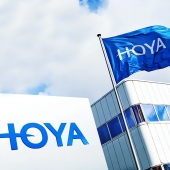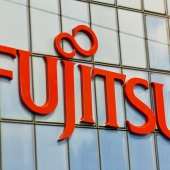-
Optics giant Hoya hit with $10 million ransomware demand
A recent cyberattack on Hoya Corporation was conducted by the 'Hunters International' ransomware operation, which demanded a $10 million ransom for a file decryptor and not to release files stolen during the attack.
- April 11, 2024
- 02:15 PM
 0
0
-
Hoya’s optics production and orders disrupted by cyberattack
Hoya Corporation, one of the largest global manufacturers of optical products, says a "system failure" caused servers at some of its production plants and business divisions to go offline on Saturday.
- April 04, 2024
- 01:22 PM
 0
0
-
Fujitsu found malware on IT systems, confirms data breach
Japanese tech giant Fujitsu discovered that several of its systems were infected by malware and warns that the hackers stole customer data.
- March 18, 2024
- 10:01 AM
 3
3
-
Pwn2Own Automotive: $1.3M for 49 zero-days, Tesla hacked twice
The first edition of Pwn2Own Automotive has ended with competitors earning $1,323,750 for hacking Tesla twice and demoing 49 zero-day bugs in multiple electric car systems between January 24 and January 26.
- January 26, 2024
- 07:32 AM
 0
0
-
Tesla hacked again, 24 more zero-days exploited at Pwn2Own Tokyo
Security researchers hacked the Tesla infotainment system and demoed a total of 24 zero-days on the second day of the Pwn2Own Automotive 2024 hacking competition.
- January 25, 2024
- 10:49 AM
 2
2
-
Tesla hacked, 24 zero-days demoed at Pwn2Own Automotive 2024
Security researchers hacked a Tesla Modem and collected awards of $722,500 on the first day of Pwn2Own Automotive 2024 for three bug collisions and 24 unique zero-day exploits.
- January 24, 2024
- 08:36 AM
 2
2
-
Android game dev’s Google Drive misconfig highlights cloud security risks
Japanese game developer Ateam has proven that a simple Google Drive configuration mistake can result in the potential but unlikely exposure of sensitive information for nearly one million people over a period of six years and eight months.
- December 31, 2023
- 10:09 AM
 4
4
-
Japanese Space Agency JAXA hacked in summer cyberattack
The Japan Aerospace Exploration Agency (JAXA) was hacked in a cyberattack over the summer, potentially compromising sensitive space-related technology and data.
- November 29, 2023
- 12:04 PM
 0
0
-
Seiko says ransomware attack exposed sensitive customer data
Japanese watchmaker Seiko has confirmed it suffered a Black Cat ransomware attack earlier this year, warning that the incident has led to a data breach, exposing sensitive customer, partner, and personnel information.
- October 25, 2023
- 12:40 PM
 0
0
-
Casio discloses data breach impacting customers in 149 countries
Japanese electronics manufacturer Casio disclosed a data breach impacting customers from 149 countries after hackers gained to the servers of its ClassPad education platform.
- October 19, 2023
- 07:37 AM
 0
0
-
Japanese watchmaker Seiko breached by BlackCat ransomware gang
The BlackCat/ALPHV ransomware gang has added Seiko to its extortion site, claiming responsibility for a cyberattack disclosed by the Japanese firm earlier this month.
- August 21, 2023
- 10:40 AM
 0
0
-
Japan’s largest port stops operations after ransomware attack
The Port of Nagoya, the largest and busiest port in Japan, has been targeted in a ransomware attack that currently impacts the operation of container terminals.
- July 05, 2023
- 06:00 AM
 0
0
-
Hacking group abuses antivirus software to launch LODEINFO malware
The Chinese Cicada hacking group, tracked as APT10, was observed abusing security software to install a new version of the LODEINFO malware against Japanese organizations.
- October 31, 2022
- 11:34 AM
 0
0
-
EmoCheck now detects new 64-bit versions of Emotet malware
The Japan CERT has released a new version of their EmoCheck utility to detect new 64-bit versions of the Emotet malware that began infecting users this month.
- April 28, 2022
- 05:01 PM
 0
0
-
New ONE PIECE anime episodes delayed after Toei cyberattack
Anime giant Toei suffered a weekend cyberattack causing delays in airing new episodes of popular anime series, including ONE PIECE and Delicious Party Precure.
- March 11, 2022
- 10:09 AM
 0
0
-
University loses 77TB of research data due to backup error
The Kyoto University in Japan has lost about 77TB of research data due to an error in the backup system of its Hewlett-Packard supercomputer.
- December 30, 2021
- 11:02 AM
 9
9
-
US returns $154 Million in bitcoins stolen by Sony employee
The United States has taken legal action to seize and return over $154 million purportedly stolen from Sony Life Insurance Company Ltd, a SONY subsidiary, by an employee in a textbook business email compromise (BEC) attack.
- December 21, 2021
- 12:03 PM
 2
2
-
Fujitsu pins Japanese govt data breach on stolen ProjectWEB accounts
Fujitsu says the attackers behind the May data breach used a vulnerability in the company's ProjectWEB information-sharing tool to steal accounts from legitimate users and access proprietary data belonging to multiple Japanese government agencies.
- December 09, 2021
- 07:47 AM
 0
0
-
Chaos ransomware targets gamers via fake Minecraft alt lists
The Chaos Ransomware gang encrypts gamers' Windows devices through fake Minecraft alt lists promoted on gaming forums.
- October 30, 2021
- 11:02 AM
 0
0
-
Android spyware spreading as antivirus software in Japan
A new variant of the Android info-stealer called FakeCop has been spotted by Japanese security researchers, who warn that the distribution of the malicious APK is picking up pace.
- October 28, 2021
- 12:31 PM
 0
0

























